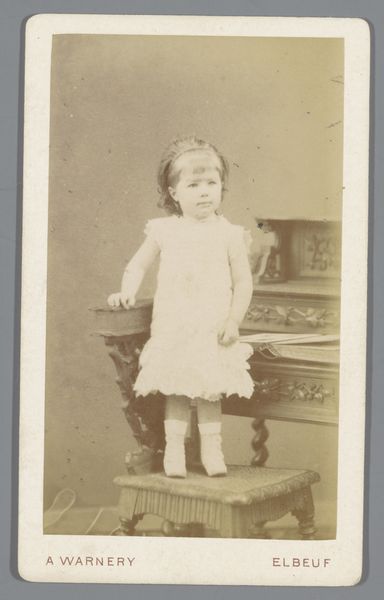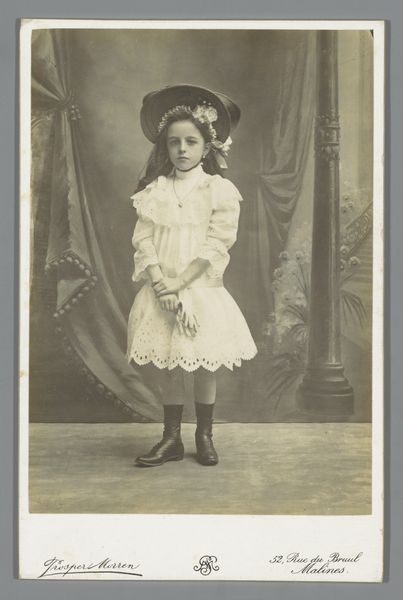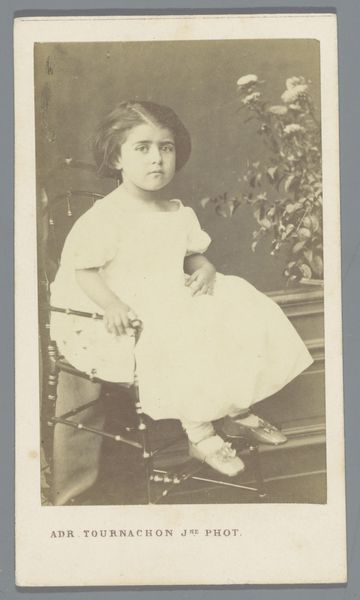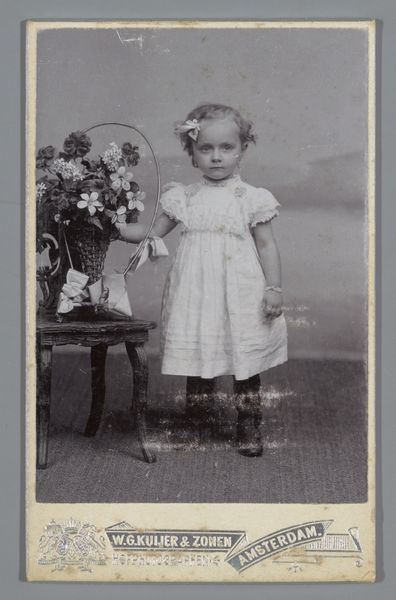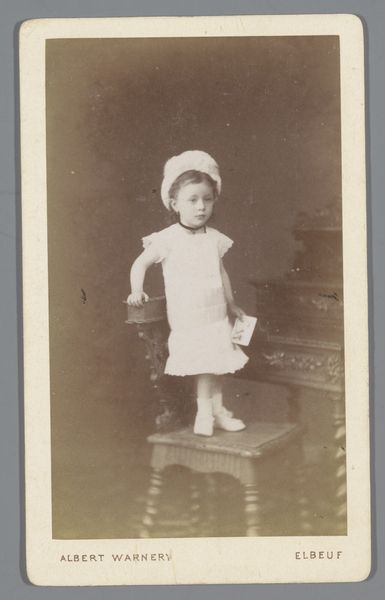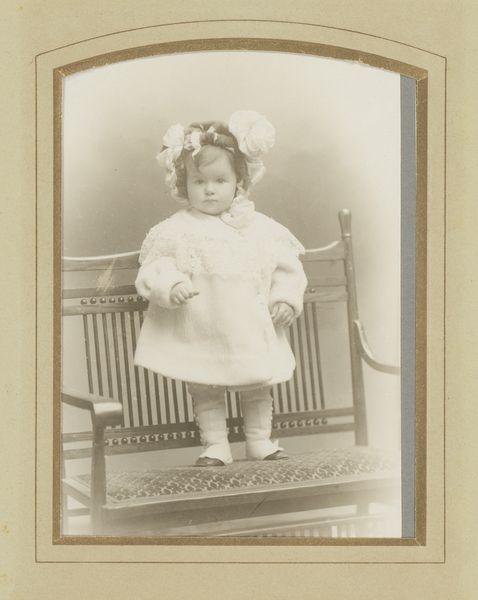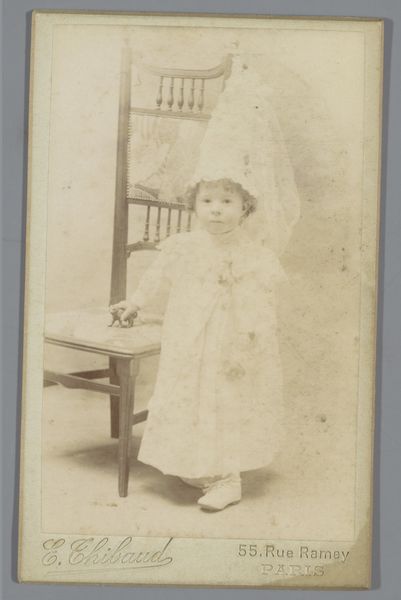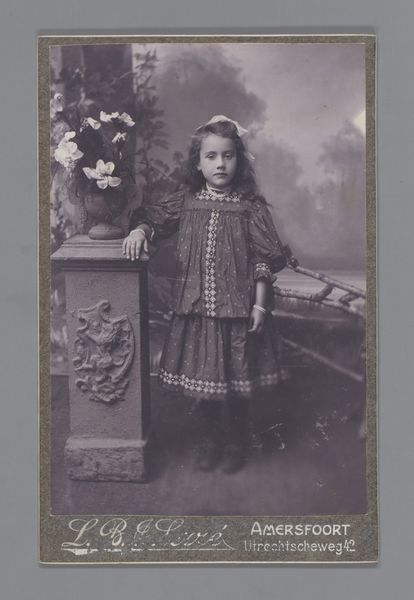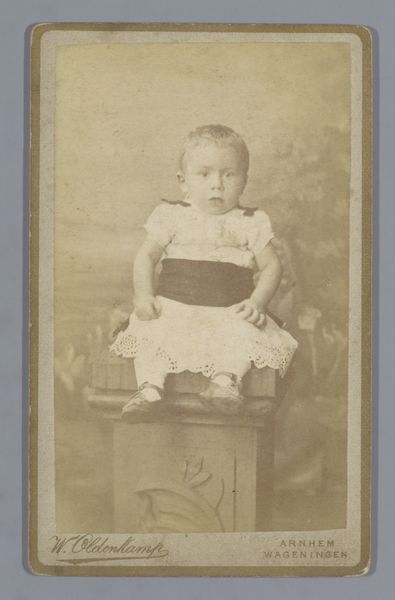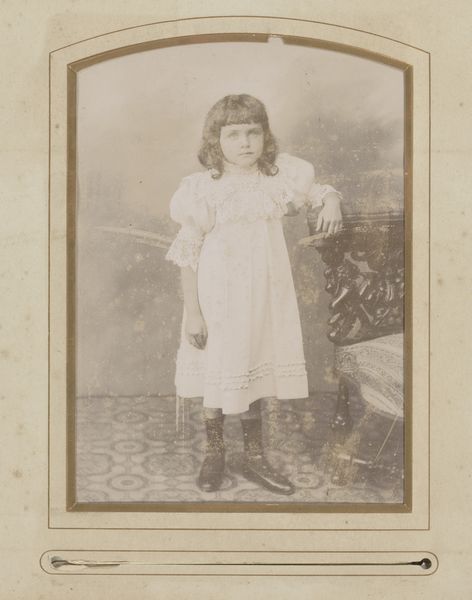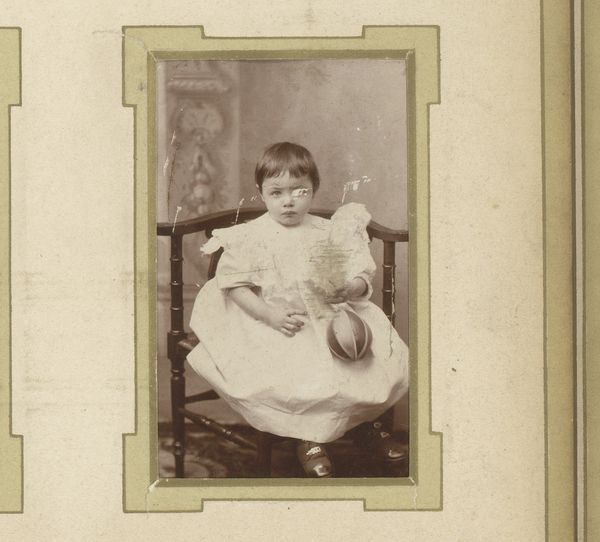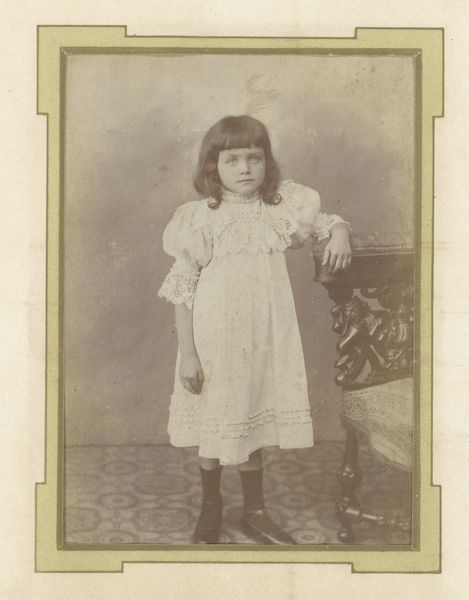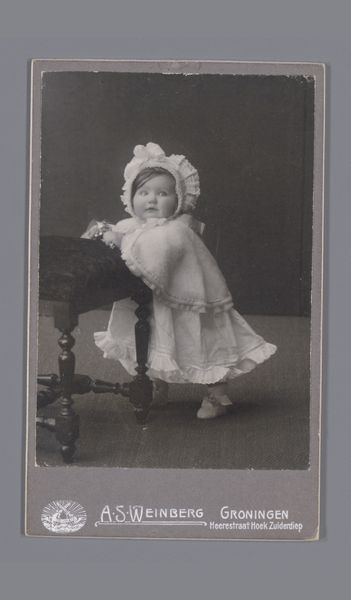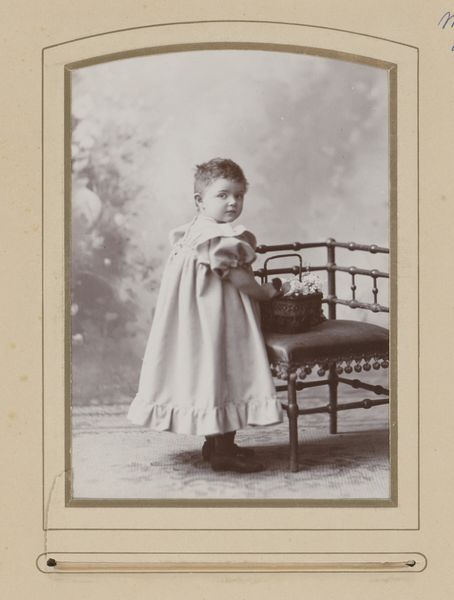
photography, gelatin-silver-print
#
portrait
#
photography
#
historical fashion
#
child
#
gelatin-silver-print
#
19th century
#
genre-painting
Dimensions: height 96 mm, width 65 mm
Copyright: Rijks Museum: Open Domain
This photographic portrait of an unknown child next to a chair was made by François Besson. Photographs such as this were typically produced through a complex interplay of chemical processes and mechanical precision. In Besson's time, photography was a relatively new medium, deeply entwined with burgeoning industrial capabilities. The portrait studio itself was a site of labor, where photographers like Besson carefully managed light, composition, and the sitter's pose to create an idealized image. This one suggests the trappings of middle-class life. But consider also the invisible work behind it. The production of photographic materials relied on factory workers and global supply chains, connecting this intimate portrait to larger networks of labor and commerce. Even the child's dress and the chair beside her carry the traces of textile mills, seamstresses and furniture makers. By considering these material and social dimensions, we can appreciate how photography, even in its most seemingly straightforward form, is deeply embedded in the industrial processes and societal structures of its time.
Comments
No comments
Be the first to comment and join the conversation on the ultimate creative platform.
